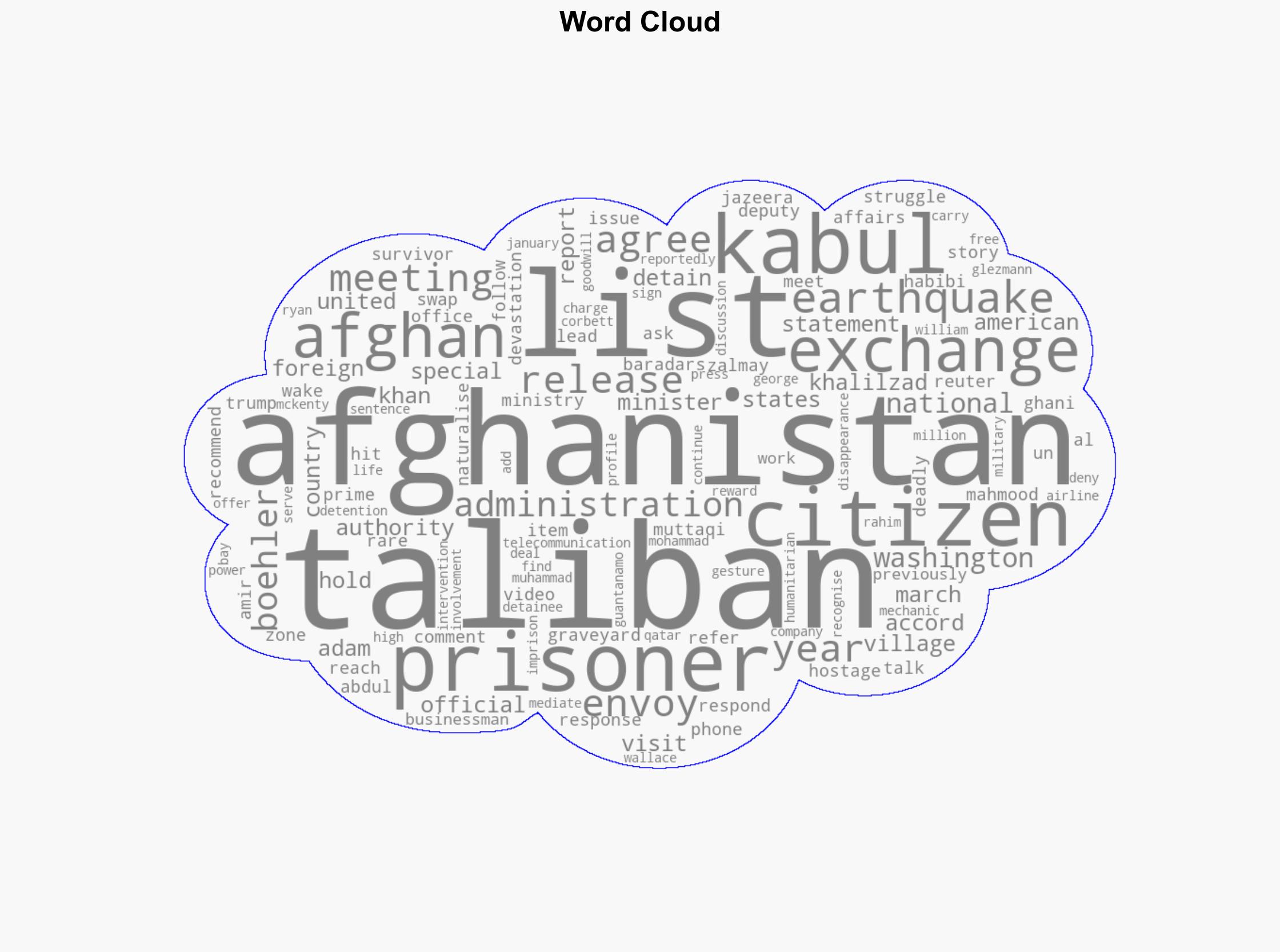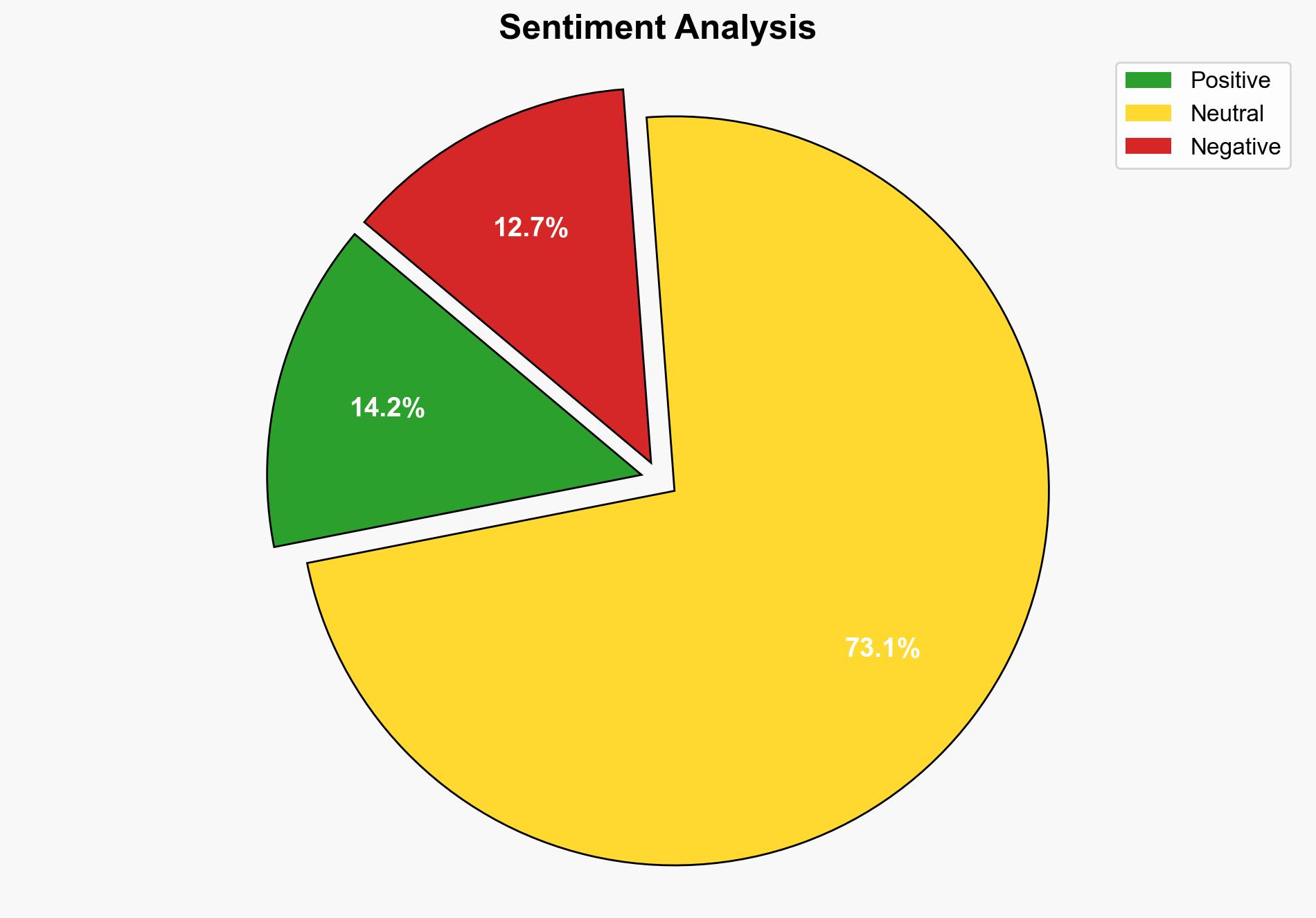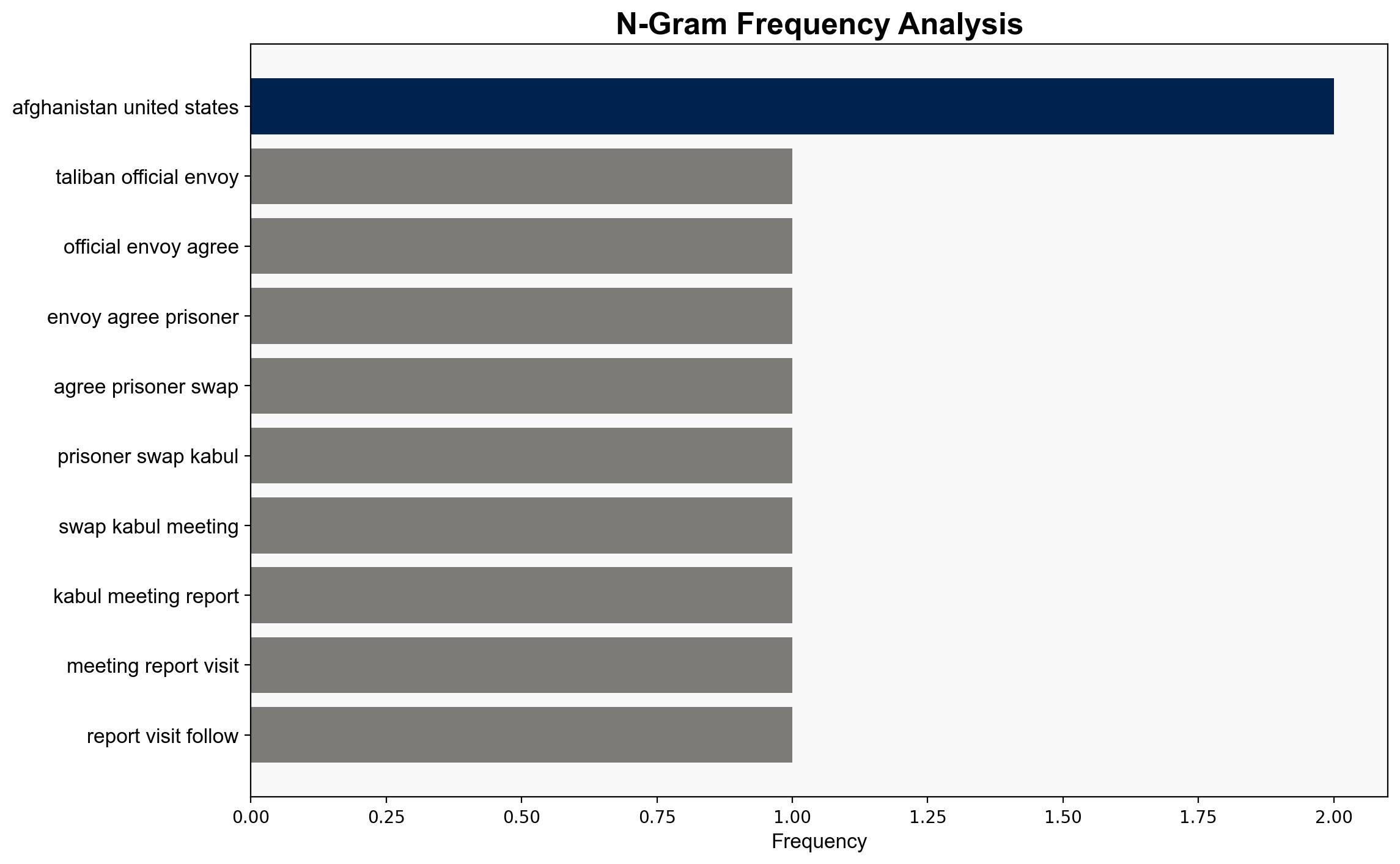US officials meet Taliban in Kabul to discuss Americans held in Afghanistan – Al Jazeera English
Published on: 2025-09-13
Intelligence Report: US officials meet Taliban in Kabul to discuss Americans held in Afghanistan – Al Jazeera English
1. BLUF (Bottom Line Up Front)
The strategic judgment is that the meeting between US officials and the Taliban in Kabul is primarily aimed at negotiating the release of American detainees through a prisoner exchange. This hypothesis is supported by the recent history of similar negotiations and the involvement of key figures known for such diplomatic efforts. Confidence level: Moderate. Recommended action: Continue diplomatic engagement while preparing contingency plans for potential non-cooperation or escalation.
2. Competing Hypotheses
Hypothesis 1: The primary goal of the US-Taliban meeting is to negotiate a prisoner exchange to secure the release of American detainees in Afghanistan. This is supported by past instances of prisoner swaps and the presence of envoys known for hostage negotiations.
Hypothesis 2: The meeting serves a broader strategic purpose, potentially including discussions on humanitarian aid, regional stability, or counter-terrorism cooperation, with the prisoner exchange being a secondary agenda. This hypothesis considers the broader geopolitical context and the Taliban’s need for international legitimacy.
3. Key Assumptions and Red Flags
Assumptions:
– The Taliban is willing to engage in good faith negotiations.
– The US has leverage or incentives to offer in exchange for detainees.
Red Flags:
– The Taliban’s denial of involvement in certain detentions could indicate deception or internal factional disagreements.
– Lack of transparency in the meeting’s outcomes could suggest undisclosed agendas or failed negotiations.
4. Implications and Strategic Risks
– Successful negotiations could improve US-Taliban relations and potentially lead to broader cooperation in areas like counter-terrorism.
– Failure to reach an agreement may lead to increased tensions and complicate future diplomatic efforts.
– The release of detainees could be perceived as a sign of goodwill, but may also embolden the Taliban if perceived as a concession.
– Regional actors may react to the meeting’s outcomes, affecting geopolitical dynamics in South Asia.
5. Recommendations and Outlook
- Continue diplomatic efforts with a focus on transparency and clear communication to manage expectations and reduce risks of misinterpretation.
- Prepare for potential non-cooperation by developing alternative strategies for detainee release, including multilateral pressure or sanctions.
- Best-case scenario: Successful prisoner exchange leading to improved bilateral relations.
- Worst-case scenario: Breakdown of talks resulting in heightened tensions and potential retaliatory actions.
- Most likely scenario: Limited progress with ongoing negotiations and incremental improvements in relations.
6. Key Individuals and Entities
– Adam Boehler
– Zalmay Khalilzad
– Amir Khan Muttaqi
– Abdul Ghani Baradar
– Mahmood Habibi
– Muhammad Rahim
– George Glezmann
– Ryan Corbett
– William Wallace McKenty
– Khan Mohammad
7. Thematic Tags
national security threats, geopolitical negotiations, hostage diplomacy, regional stability




